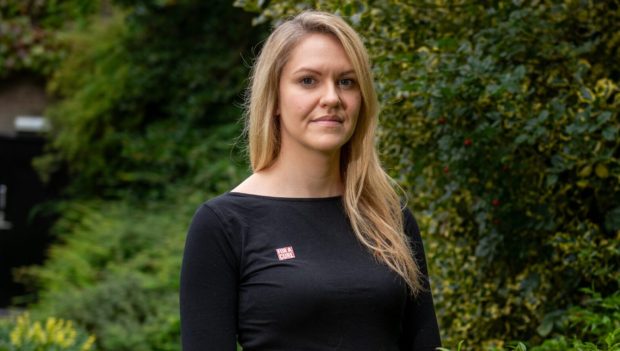
The number of people in Scotland dying from Alzheimer’s and other forms of dementia has more than tripled in the past 20 years and the country is unprepared for further expected surges, health experts have warned.
Analysis by The Sunday Post today lays bare the true impact of the disease.
Dementia and Alzheimer’s touch almost every family in our communities – robbing loved ones of their precious memories while piling pressure onto relatives who are left to act as carers. Across Scotland, it is estimated more than 90,000 people now have a form of the condition.
Our research reveals a ticking timebomb, with deaths linked to dementia and Alzheimer’s topping 6,200 in 2022 – tripling in just over two decades.

Health experts say things are only going to get worse. A study from the GBD 2019 Dementia Forecasting Collaborators published last year predicts the number of people living with dementia could further triple globally by 2050.
Dr Fiona McLean, a dementia researcher from Dundee University, said more urgent preparation is needed as our population ages.
“Are we ready for these numbers to triple by 2050? No, we are not,” she said. “If you look at our NHS and the way beds are taken up by patients who are stuck in hospital for a very long time…it is scary how unprepared we are for this.
“We need to put more funding into healthcare systems, the NHS, but also social care systems.
“We need to enable people within their family units to be able to care for people.”

Dementia expert Professor June Andrews added: “Scotland is not prepared. Everyone needs to prepare for themselves.”
To highlight the cost of dementia on society, socially and financially, The Sunday Post’s data team spoke to experts and examined figures from National Records of Scotland, Public Health Scotland and freedom of information inquiries.
Last year the Western Isles had the highest rate of dementia in Scotland with 108 per 100,000 people. In total, 17 people had dementia stated as a cause on their death certificate.
For Alzheimer’s, Angus had the highest death rate in 2022, with 70 and a rate of 80 per 100,000 population.
NHS Grampian consultant psychiatrist Jonathan McLaughlin said: “I have a sense that there’s a greater recognition of dementia, and there’s a greater propensity to diagnose it now. I think there’s probably a greater propensity to put it as a cause of death on death certificates.”
VIDEO: Dundee husband tells his story after dementia diagnosis five years ago
More than half (62.8%) of all long-stay residents in Scotland’s care homes are estimated to have a form of dementia, according to the annual Care Home Census.
The weekly price of care for self-funded residents (publicly funded costs are different) ranges from £1,645 in Aberdeen to £926 in the Western Isles. Other authorities where costs are over £1,400 include Shetland, Edinburgh, and Argyll and Bute.
Only three areas saw weekly costs remain below a £1,000 threshold – the Western Isles, Dumfries and Galloway, and North Lanarkshire.
Andrews said: “People of my age have benefited from a massive increase in the value of our houses which were so cheap that we could afford to buy them when we were young, unlike young people these days.
“So, all that accrued wealth will go into our care, but I don’t know how today’s young people will pay for it when they get old. There is a black hole coming that will have to be filled with higher taxes or people looking after themselves in future.”
Dementia help
Where to go to get support:
If you or a loved one need support with dementia, there is a range of different support options available.
Alzheimer Scotland provides a 24-hour freephone dementia helpline, which will give information and signposting to resources, and help with emotional support for people with the illness, as well as their friends and families. It is confidential, and can be accessed by giving them a call on 0808 808 3000.
The NHS also has compiled information that can be used by carers or family members who are looking after those who need assistance. It is available on the NHS UK website. Dementia UK also runs a free and confidential dementia helpline that is staffed by specialist Admiral nurses.
You can also book virtual clinics to discuss any concerns.

Enjoy the convenience of having The Sunday Post delivered as a digital ePaper straight to your smartphone, tablet or computer.
Subscribe for only £5.49 a month and enjoy all the benefits of the printed paper as a digital replica.
Subscribe